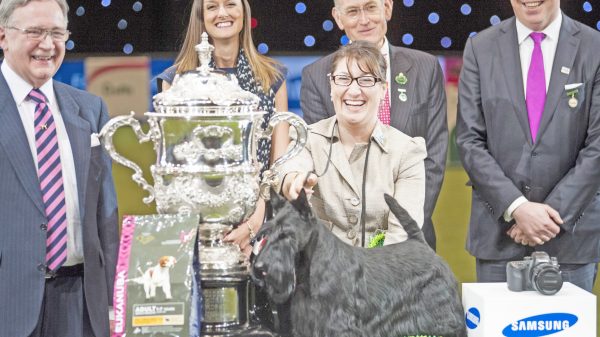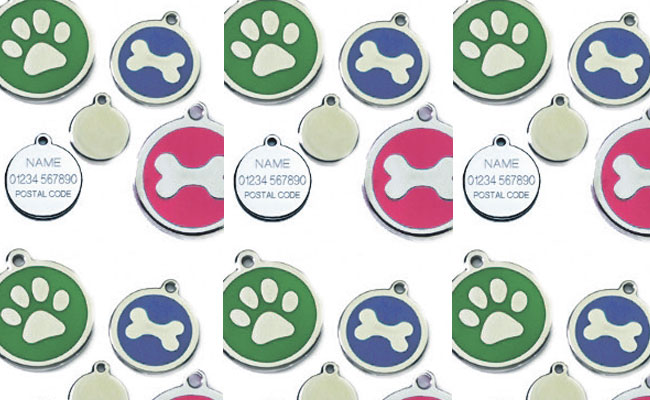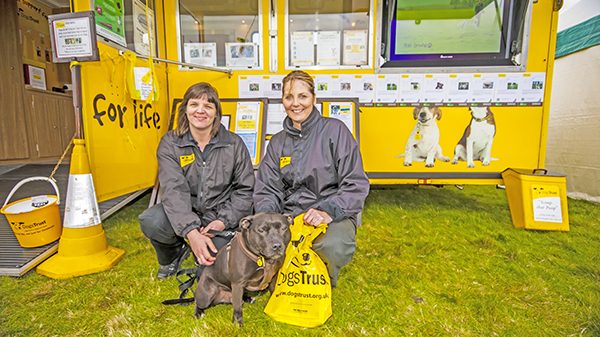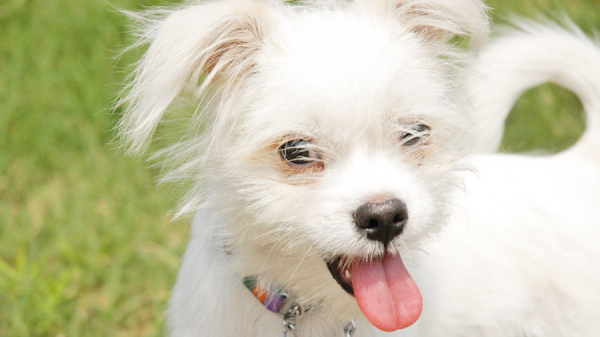HISTORY: The name ‘St Bernard’ is derived from the hospice in the treacherous mountain pass in the high Alps of Switzerland and Italy. Great Saint Bernard Pass Hospice was founded in 980AD by St Bernard de Menthon as a refuge for travellers. In the early 1700’s over worked tired monks at the hospice realised that dogs with their strong sense of smell, strength, weather resistant coats and in-bred sense of direction was a key to survival in blizzards, as humans in these conditions got lost and disorientated. With this realisation the monks by the 1800’s had established their own dog breeding programme naming the dogs Alpine Mastiffs. The most famous dog they bred to act in a rescue role in the high Alps was called Barry who reportedly saved between 40 – 100 travellers. Around the 1830’s there was a shortage of the dogs due to inter breeding, disease and the bad weather conditions so the monks out crossed with Newfoundlands, Great Pyrenees, and Great Danes, resulting in the St Bernard, the breed we know today.
The Swiss St. Bernard Club was founded in Basel on the 15th March 1884 and the breed standard was approved in 1888. Since then, the breed has been regarded as the national dog of the Swiss
In 2005 The Barry Foundation was founded to take over the breeding kennels from the Holy Order of the Canons Regular of Grand Saint Bernard.
Since then, the Foundation has been the owner of the 300-year-old breeding kennels, which are the oldest and most significant in the world for the Swiss national dog. The non-profit organisation is committed to preserving the famous, legendary dogs of the Great Saint Bernard pass, and to maintaining the typical characteristics of the hospice Saint Bernard. Furthermore, the Foundation’s aim is to bring joy into the lives of as many people as possible by enabling them to meet the Saint Bernards. It makes an active contribution towards improving the relationship between people and dogs.
The Barry Foundation sets great store to promote the well-being of the dogs by finding meaningful occupations for them. As visiting or social dogs, they continue the tradition of the earlier rescue dogs and are entrusted with dignified tasks that are in line with today’s needs and correspond to their nature. A team consisting of the cynology manager (vet and behavioural specialist), a social education worker, the dog and kennel manager as well as a dozen members of staff take care of the well-being, optimal development, socialisation and training of the dogs.
The Barry Foundation currently owns 27 bitches and 8 males. 20 pedigree puppies are born at the breeding kennels on average each year. The breeding kennels are financed mainly by a variety of different types of donation.
www.fondation-barry.ch/en Viewpoint by Diane Deuchar Fawcett, KC Assured Breeder, (Saranbeck St Bernard) North Yorkshire
Our family have always loved dogs and for many years we rescued and re-homed strays. My children would end up in tears as the dogs left to go with their new owners, so after much discussion we decided to get a dog of our own. My husband at the time wanted a big dog. I just happened to see an advert for a litter of Saints advertised at Guiseley with research done and a lot of thought the story began …..with much help from leading breeders Mr Ken Gaunt of the Cornagarth Kennels and Miss Marjorie Hindes breeder and owner of Crufts Best In Show St Bernard 1974 ch ‘Burtonswood Bossy Boots’ we entered the mad world of show dogs.
I have been breeding Saints since 1969 and have several dogs ranging from 7 months to the eldest at the grand age of nearly 12yrs. Saints are a wonderful breed, my advice for anyone looking for a puppy is it’s a must to see the mother and other relatives in their own home. Proof of health checks is very important. A champion of any breed can not be declared a champion until it has passed 3 vet checks at Championship shows at which it’s being showed. Exercise in the first six months has to be gentle, no jumping in and out of cars, running up and down stairs, slippy floors, Saints grow at a tremendous rate and bones will get damaged if care is not taken.
Saints moult twice a year both in the smooth and rough coats, they slobber a lot so they are not a dog for the house proud. I recommend a good brushing twice a week and attention to ears and teeth. A good breeder will advise on care and stick to the food the breeder has given the dogs. The average price of a puppy is £1250 and vet bills for giant dogs are expensive so vet insurance is a must.
When fully grown the dogs can weigh 12 -14 stone, we prefer families with older children because a small child can easily inadvertently be knocked over by such a large dog. Sadly the Saint Bernard Trust is kept busy with Saints that have been bought without the proper research of the breed. In the right home the loyal, gentle and loving breed brings happiness to many.







